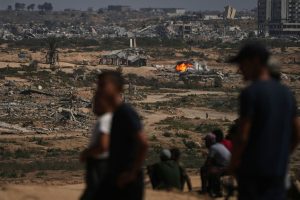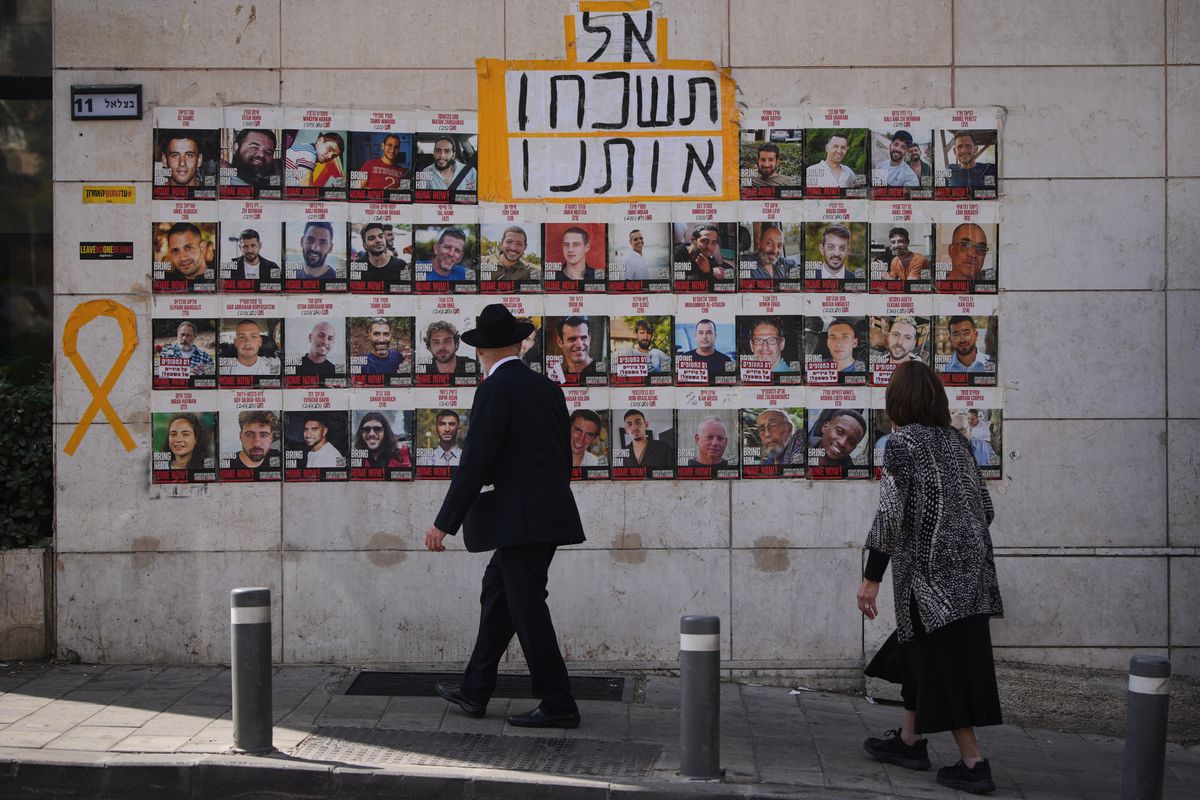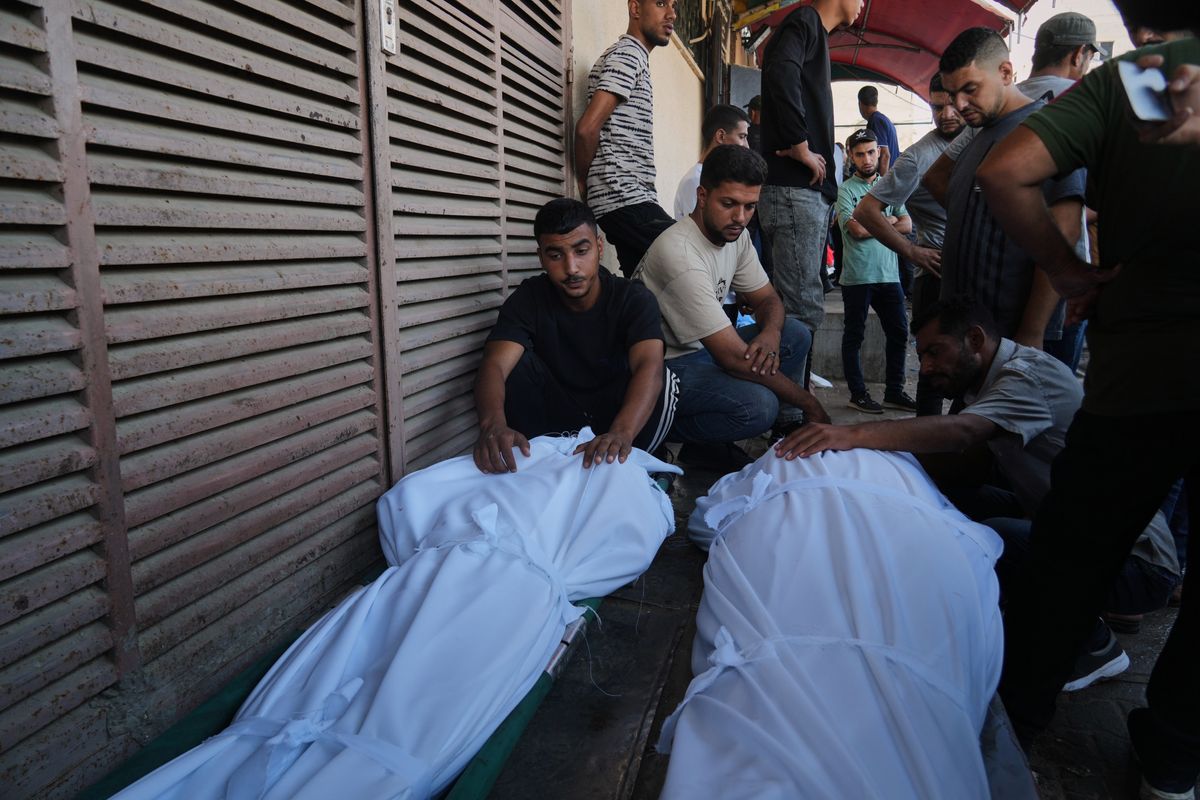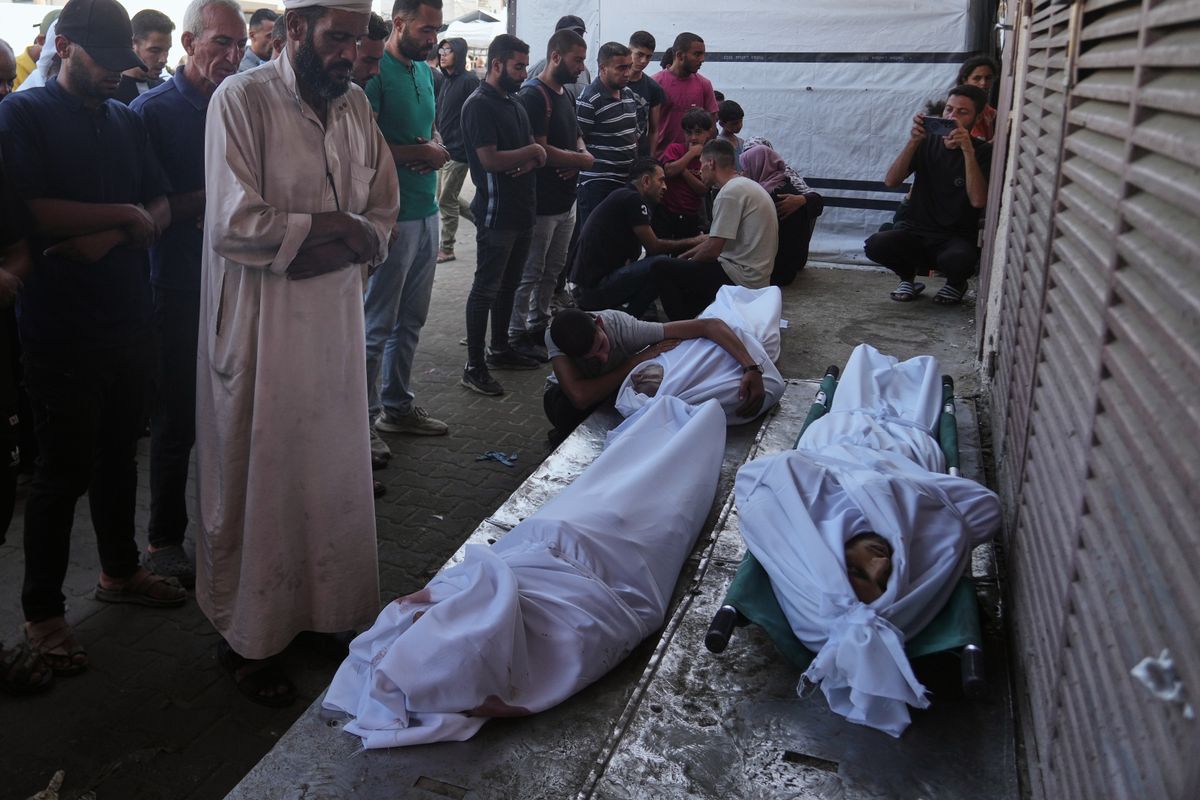TEL AVIV, Israel (AP) — Israeli bombing of Gaza City has “significantly subsided” though at least five Palestinians were killed, a hospital official said Saturday, as Israel’s army said the country’s leaders had instructed it to prepare for the first phase of the U.S. plan to end the war in Gaza.
Israel has moved to a defensive-only position in Gaza and will not actively strike, said an official who was not authorized to speak to the media on the record. The official said no forces have been removed from the territory.
Still, Shifa Hospital director Mohamed Abu Selmiyah told the AP that Israeli strikes killed five Palestinians across Gaza City, while bombing had “significantly subsided.”
The army statement came hours after President Donald Trump ordered Israel to stop bombing Gaza once Hamas said it had accepted some elements of his plan. Trump welcomed the Hamas statement, saying: “I believe they are ready for a lasting PEACE.”
Trump appears determined to deliver on pledges to end the war and return all hostages ahead of the second anniversary on Tuesday of the attack that sparked it. His proposal unveiled earlier this week has widespread international support.
On Friday, Israeli Prime Minister Benjamin Netanyahu’s office said Israel was committed to ending the war that began when Hamas attacked Israel on Oct. 7, 2023. Netanyahu is under increasing pressure to end the conflict. The official told the AP that Netanyahu put out the rare late-night statement on the Sabbath, saying that Israel has started to prepare for Trump’s plan due to pressure from the U.S.
The official also said a negotiating team was getting ready to travel, but there was no date specified.
A senior Egyptian official said U.S. envoy Steve Witkoff will travel to Egypt to head the U.S. negotiating team in the talks to release the Israeli hostages in exchange for Palestinians in Israeli detention. Delegations from Israel and Hamas will join the talks, which also will discuss maps showing the expected withdrawal of Israeli forces from certain areas in Gaza, said the official who spoke on condition of anonymity because he wasn’t authorized to brief the media.
The official involved in the ceasefire negotiations also said Arab mediators are preparing for a comprehensive dialogue among Palestinians aimed at unifying their position toward Gaza’s future.
The Palestinian Islamic Jihad, the second most powerful militant group in Gaza, said it accepted Hamas’ response to the Trump plan. The group had rejected the proposal days earlier.
Progress, but uncertainty ahead
Under the plan, Hamas would release the remaining 48 hostages — around 20 of them believed to be alive — within three days. It also would give up power and disarm.
In return, Israel would halt its offensive and withdraw from much of Gaza, release hundreds of Palestinian prisoners and allow an influx of humanitarian aid and eventual reconstruction.
Hamas said it was willing to release the hostages and hand over power to other Palestinians, but that other aspects of the plan require further consultations among Palestinians. Its statement also didn’t address the issue of Hamas demilitarizing, a key part of the deal.
Amir Avivi, a retired Israeli general and chairman of Israel’s Defense and Security Forum, said while Israel can afford to stop firing for a few days in Gaza so the hostages can be released, it will resume its offensive if Hamas doesn’t lay down its arms.
Others said that while Hamas suggests a willingness to negotiate, its position fundamentally remains unchanged.
This “yes, but” rhetoric “simply repackages old demands in softer language,” said Oded Ailam, a researcher at the Jerusalem Center for Security and Foreign Affairs, who asserted that it serves more as a smoke screen than a signal of true movement toward resolution.
Hostages’ families expressed cautious hope about the plan.
Hamas and Netanyahu could sabotage the deal or Trump could lose interest, said Yehuda Cohen, whose son Nimrod is held in Gaza. Still, he said, if it’s going to happen it will be because of Trump.
“We want to see him with us until the last step,” he said.
Meanwhile, protests have erupted across Europe calling for the war’s end.
Unclear what it means for Palestinians
Palestinians in Gaza tried to piece together what the plan means in real terms.
“We want practical implementation. We want a truce on the ground,” said Sameer Qudeeh in Khan Younis. He worried that talks will break down again.
“I hope Hamas ends the war, because we are truly tired,” said Mohammad Shaat in Khan Younis, as anxious Palestinians roamed the shattered streets.
Israeli troops were still laying siege to Gaza City, the focus of its latest offensive. On Saturday, Israel’s army warned Palestinians against trying to return to the city, calling it a “dangerous combat zone.”
Two Gaza City residents told the AP that since the morning, Israeli tanks and troops had not advanced but artillery shells and airstrikes were still heard.
“We can still see the quadcopters everywhere,” Mohamed al-Nashar said.
Gaza’s Health Ministry said the Palestinian death toll in the war has topped 67,000. The toll jumped after the ministry said it added more than 700 names to the list whose data had been verified.
The Health Ministry does not say how many were civilians or combatants. It says women and children make up around half the dead. The ministry is part of the Hamas-run government, and the U.N. and many independent experts consider its figures to be the most reliable estimate of wartime casualties.
___
Magdy reported from Cairo.
___
Follow AP’s war coverage at https://apnews.com/hub/israel-hamas-war
By SAM MEDNICK and SAMY MAGDY
Associated Press




